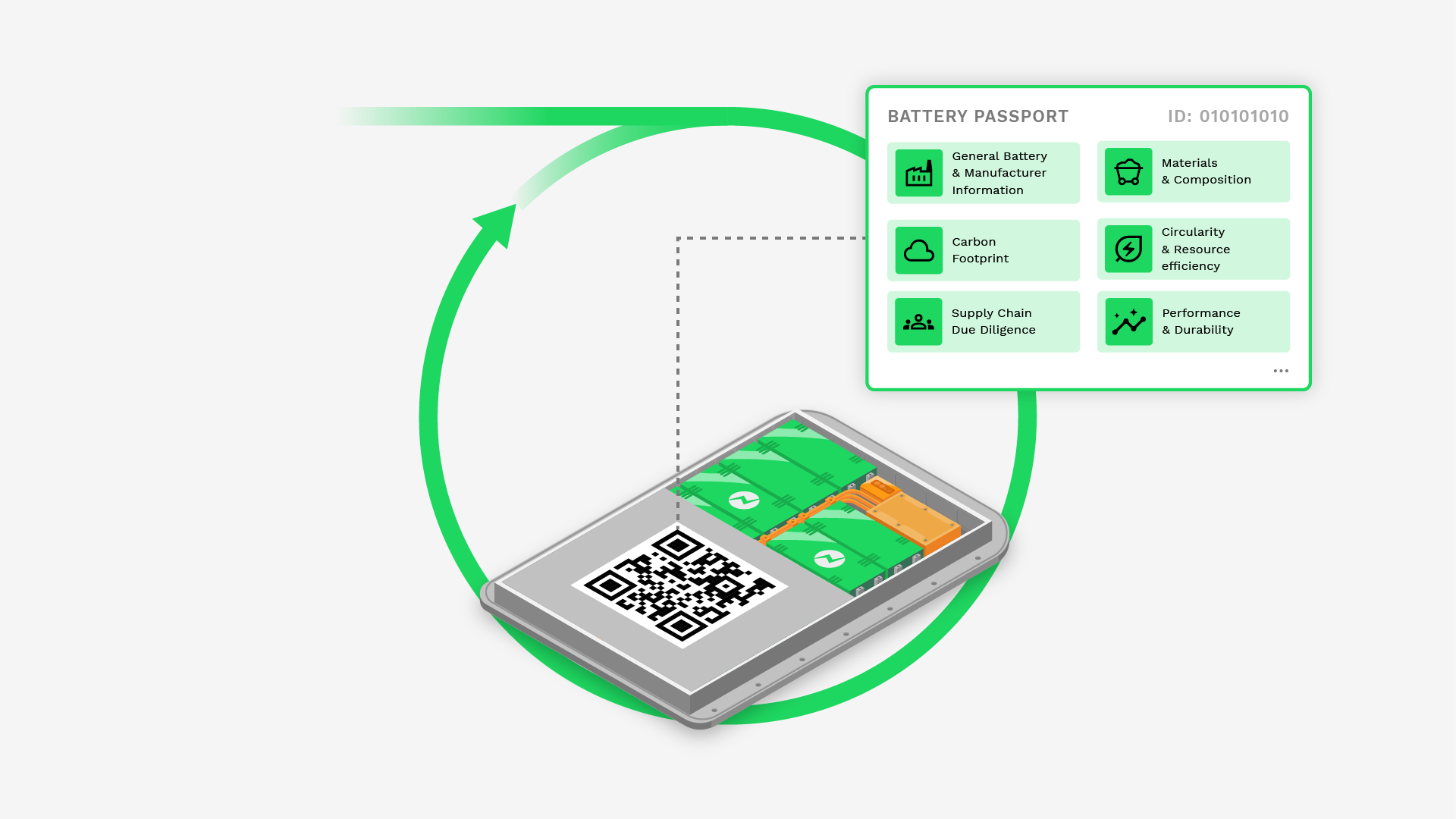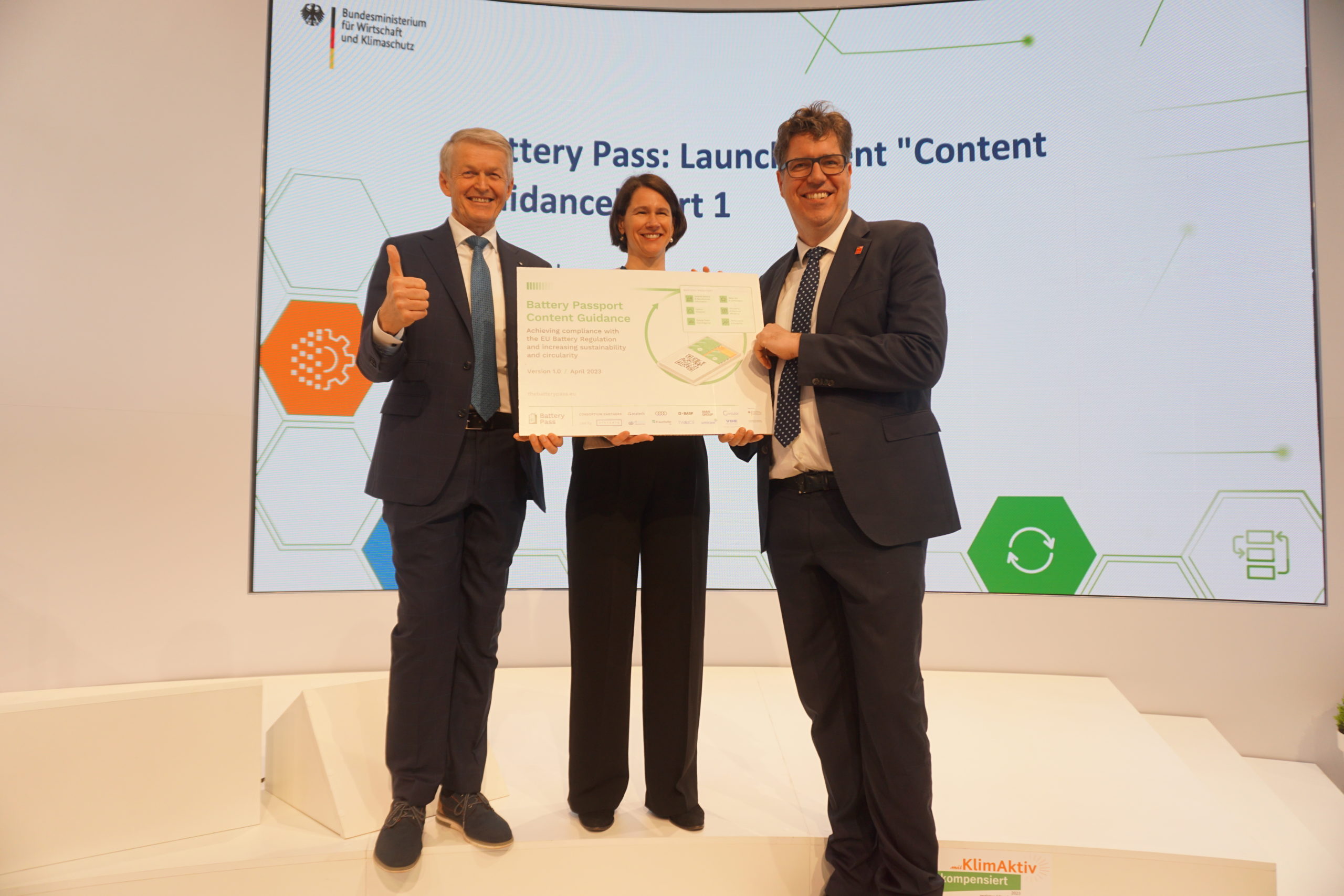A consortium of eleven leading international organisations from industry, technology and science has launched the first publicly available Content Guidance on the EU Battery Passport. It is designed to support the implementation of the battery passport as mandated by the new EU Battery Regulation in a way that is feasible for industry players while guaranteeing the environmental and economic benefits of a digital product passport. Published by the Battery Pass project with co-funding from the German Federal Ministry for Economic Affairs and Climate Action (BMWK), the Content Guidance primarily addresses organisations responsible for implementing the battery passport (“responsible economic operators”) and other battery value chain participants. It aims to provide a timely and comprehensive guidance on how to achieve compliance with the Battery Regulation and enable increased sustainability and circularity.
The Content Guidance was officially handed over at Hannover Messe to Michael Kellner, Parliamentary State Secretary, BMWK, in a ceremony hosted as part of the Ministry’s stage programme on ‘Funding focus “Battery cell production in Germany”. Sustainable battery cell production – a cornerstone for the climate-friendly mobility of the future’.
Ulrich Ahle, CEO at FIWARE Foundation says: “The Content Guidance presents an important approach to help the whole battery passport ecosystem to start evaluating its individual roles and implications. This also applies to the FIWARE Foundation in its role as a generic technology provider for the Battery Pass project. The work on the Content Guidance was an important foundation to understand the various aspects of all the relevant parts of battery passport regulation. Based on that, we could build a reference model of the battery data ecosystem, create a shortlist of suitable standards derived from our generic technical standard stack and compile an extended list of data attributes as starting point for the development of important use cases and demonstrators”.
In a bid to provide transparency and support for the industry and the wider battery passport ecosystem, the Content Guidance:
- aggregates, interprets and assesses the content requirements mandated by the EU Battery Regulation. This includes highlighting unclarities and inconsistencies of the legal text and scope as well as ensuring a reasonable balancing of sustainability objectives with industry feasibility;
- explores further key regulatory frameworks such as the Ecodesign for Sustainable Products Regulation, to highlight harmonisation potentials with other legislations; and
- suggests additional value-adding aspects beyond the mandatory regulatory scope to enable increased sustainability and circularity.
Over the course of 2023, the Battery Pass project will explore how to further evolve the Content Guidance in collaboration with other stakeholders. Meanwhile it will focus on shaping the first technical reference framework in accordance with EU requirements. This will allow any economic operator and other battery passport frameworks to develop compliant and interoperable passports.
The Battery Passport Content Guidance is available at: https://thebatterypass.eu/
Read more about the Battery Passport Content Guidance in the official press-release:
From left to right: Prof. Dr.-Ing. Thomas Weber, President, acatech – National Academy of Science and Engineering, Sophie Herrmann, Partner, Systemiq GmbH and Programme Director, Battery Pass Consortium, Michael Kellner, The Parliamentary State Secretary of the Federal Ministry for Economic Affairs and Climate Action BMWK.
Download the press release:



